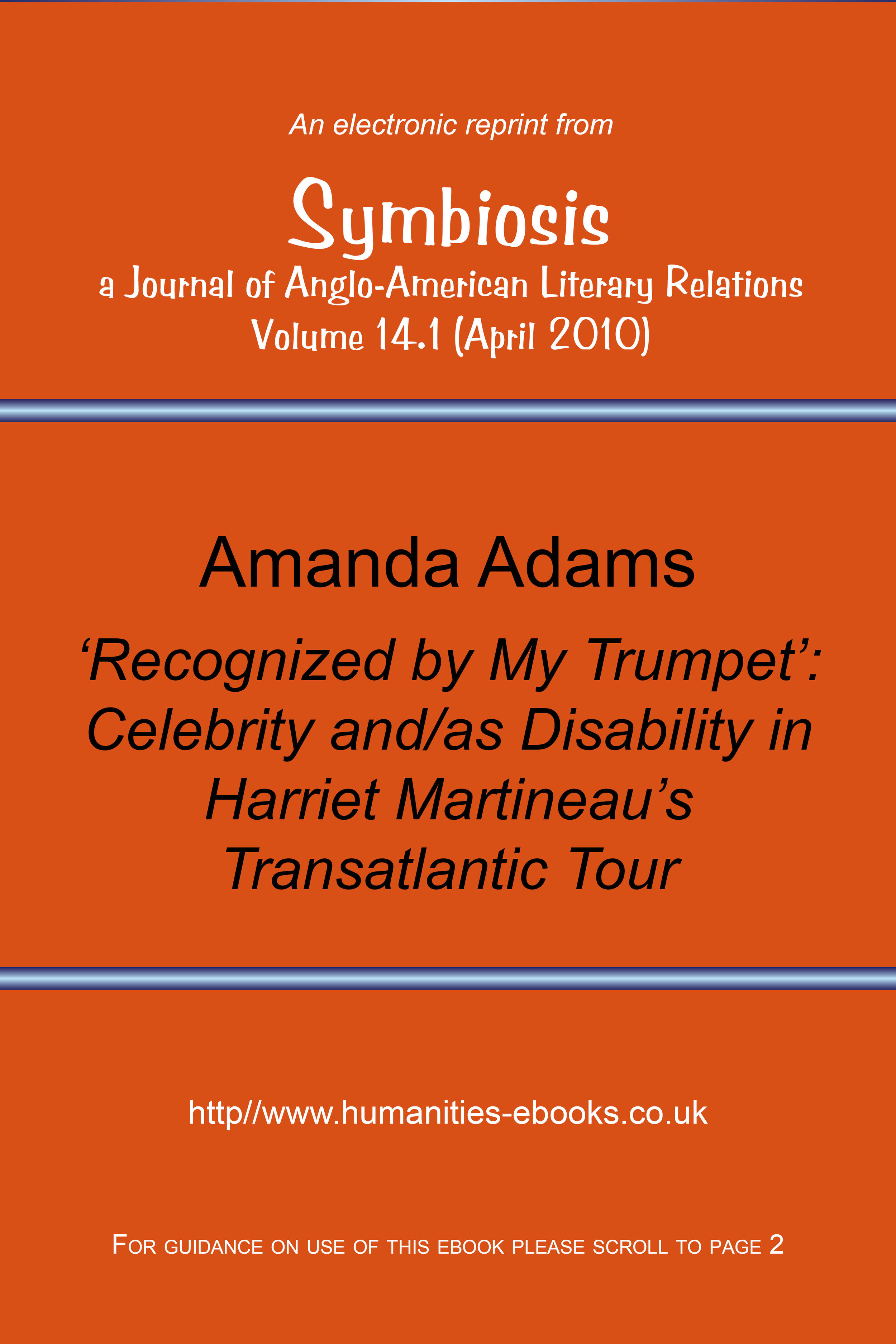 Image 1 of 2
Image 1 of 2

 Image 2 of 2
Image 2 of 2



"Recognized by My Trumpet": Celebrity and/as Disability in Harriet Martineaus Transatlantic Tour
Symbiosis 13.2
Author: Amanda Adams
Pages: 16
Amanda Adams' essay "‘Recognized by My Trumpet’: Celebrity and/as Disability in Harriet Martineau’s Transatlantic Tour" explores the intersection of celebrity and disability in the life of Victorian political economist Harriet Martineau. Focusing on Martineau's 1834–36 trip to the United States, Adams examines how Martineau's physical presence and use of a hearing trumpet challenged contemporary norms of authorship and public identity. This insightful analysis sheds light on the broader implications of celebrity culture and disability in the nineteenth century.
Symbiosis 13.2
Author: Amanda Adams
Pages: 16
Amanda Adams' essay "‘Recognized by My Trumpet’: Celebrity and/as Disability in Harriet Martineau’s Transatlantic Tour" explores the intersection of celebrity and disability in the life of Victorian political economist Harriet Martineau. Focusing on Martineau's 1834–36 trip to the United States, Adams examines how Martineau's physical presence and use of a hearing trumpet challenged contemporary norms of authorship and public identity. This insightful analysis sheds light on the broader implications of celebrity culture and disability in the nineteenth century.












